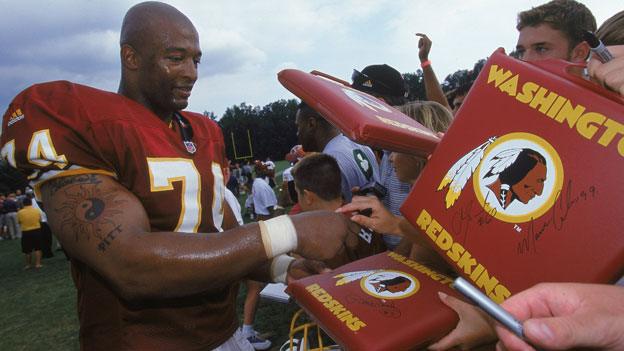What Native Americans think of the word 'redskin'
- Published
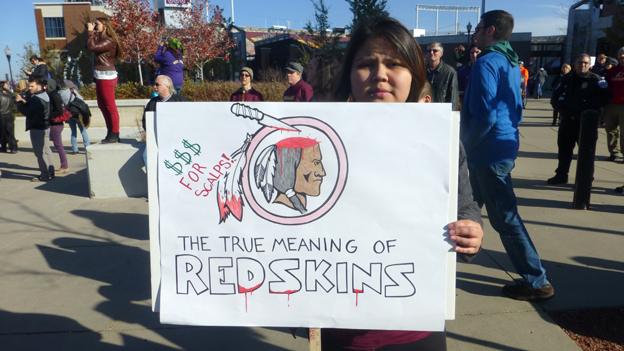
The Washington Redskins football team has come under increasing pressure to change its name and stop causing offence to Native Americans. A visit to a reservation in North Dakota helps explain why there is such strong feeling over the word "redskin".
It was the fastest $50 I ever lost. Late at night I wandered the smoke-filled floor of the Sky Dancer Casino, way at the top of frozen, flat North Dakota.
In a back room, a poker game was in full swing. Now I can mostly resist the dumbly flashing lights of slot machines, but given the chance to play cards, I'm all in.
I gave my money to the cashier and got a stack of chips in return. As I sat down at the table eight pairs of eyes looked me up and down.
You might say the locals saw me coming. In their leather jackets, baseball caps and jeans, they were friendly - but business-like.
http://www.bbc.co.uk/programmes/b04tljk6
I didn't really get the chance to chat. Because within 15 minutes they had entirely cleaned me out. My chips all gone, I slunk away to the bar.
The next day I sheepishly recounted my losses over breakfast with Jordan Brien, the young Native American who was my guide around the reservation.
"Let me ask you this," he says, "were they all Natives around the table?"
"Yes," I guess, judging by skin colour and accent - the Native American one is just slightly different from the upper Midwest honk that will be familiar to fans of the movie Fargo.
"Think of it this way - you probably fed a family for a week. Some of those guys make a living like that," says Brien. I guess that made me feel a little bit better.
Jobs at the Sky Dancer casino - whether they be fleecing visiting poker players, or more conventionally, working behind the bar - are one of the few economic bright spots on the Turtle Mountain, external reservation.
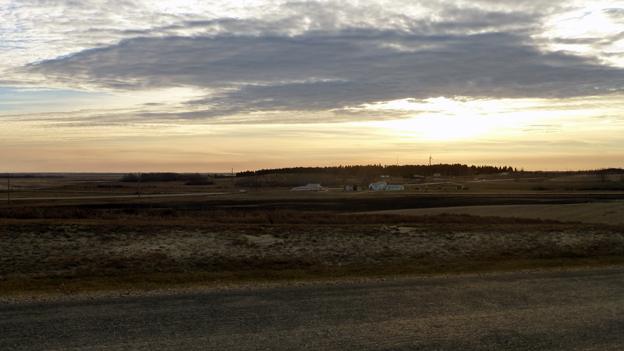
If you arrive, like I did, after driving half a day along straight, paper-flat roads, you'll notice that those mountains aren't really mountains at all - it's a stretch to even call them hills.
Still, any rise in the Great Plains landscape gives you a glorious panoramic view. This is "big sky" country, almost exactly at the centre of the North American continent.
Brien grew up here and it almost killed him: alcohol, drugs, wayward relatives, a broken home.
He's 30, but in a hoodie he looks a lot younger- it's almost as if moving off the reservation took years off his life.
He now has a musical career, a steady job, a wife, and a child on the way, but something keeps drawing him back to Turtle Mountain.
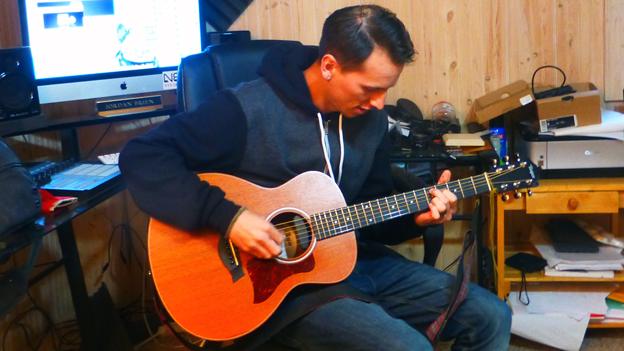
I find out what it is when we visit Brien's old school. The kids greet him with high fives and confidential asides - part pop star, part older brother.
He's greeted warmly by one of the teachers who points out the students she's most worried about.
"That one's been abandoned by his mother," she tells me. "Over there, she shows up to school with bruises. That one there, he's a father - he's just turned 14."
The obvious question is, with all the problems on Turtle Mountain, does the name of a football team in Washington DC, 1,500 miles (2,500km) away really matter?
The team's fans say the word "redskins" means honour and respect, and that it's a decades-old tradition that unites their city.
The team's owner says he'll never change it. Some argue that the row about the name is political correctness gone mad or, as they might say around these parts, "gone crazy".
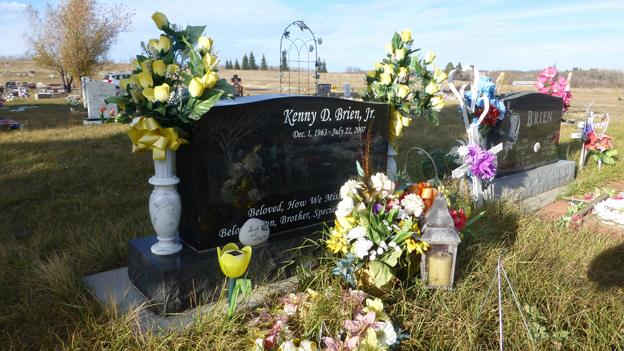
Jordan Brien's uncle, Kenny, died in his 40s
But political correctness is a strange thing - often a straw man for those who would prefer the comfort of old ways to the difficulty of changing their minds.
The history of Native Americans is certainly a bleak one of depopulation, exile and brutality.
I've been shown a newspaper advert from Minnesota, dating from 1863: "The state reward for dead Indians has been increased to $200 for every redskin sent to purgatory."
To underline the point, the advertiser added: "This sum is more than the dead bodies of all the Indians east of the Red River are worth."
One fan of the team - who's open to changing the name - tells me: "If you don't think the word's offensive, next time you see a Native American, go up to them and say 'hey redskin, how's your day going?'''
I can think of many things to call those poker players at the Sky Dancer casino.
Shrewd maybe. Slightly richer for sure. Right after dropping those $50 I could have spat out much worse.
But "redskin"? - somehow, I don't think so.

More from the Magazine
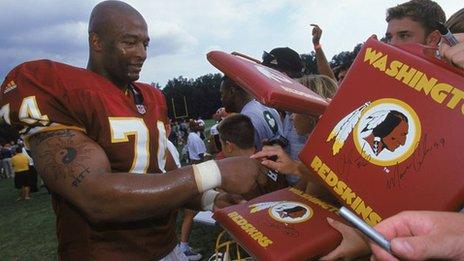

Listen to The Washington Redskins which was broadcast on Crossing Continents on BBC Radio 4, or browse Crossing Continents podcasts.
How to listen to From Our Own Correspondent, external: BBC Radio 4: Saturdays at 11:30
Listen online or download the podcast.
BBC World Service: Short editions Monday-Friday - see World Service programme schedule.
Subscribe to the BBC News Magazine's email newsletter to get articles sent to your inbox.
- Published14 September 2013
